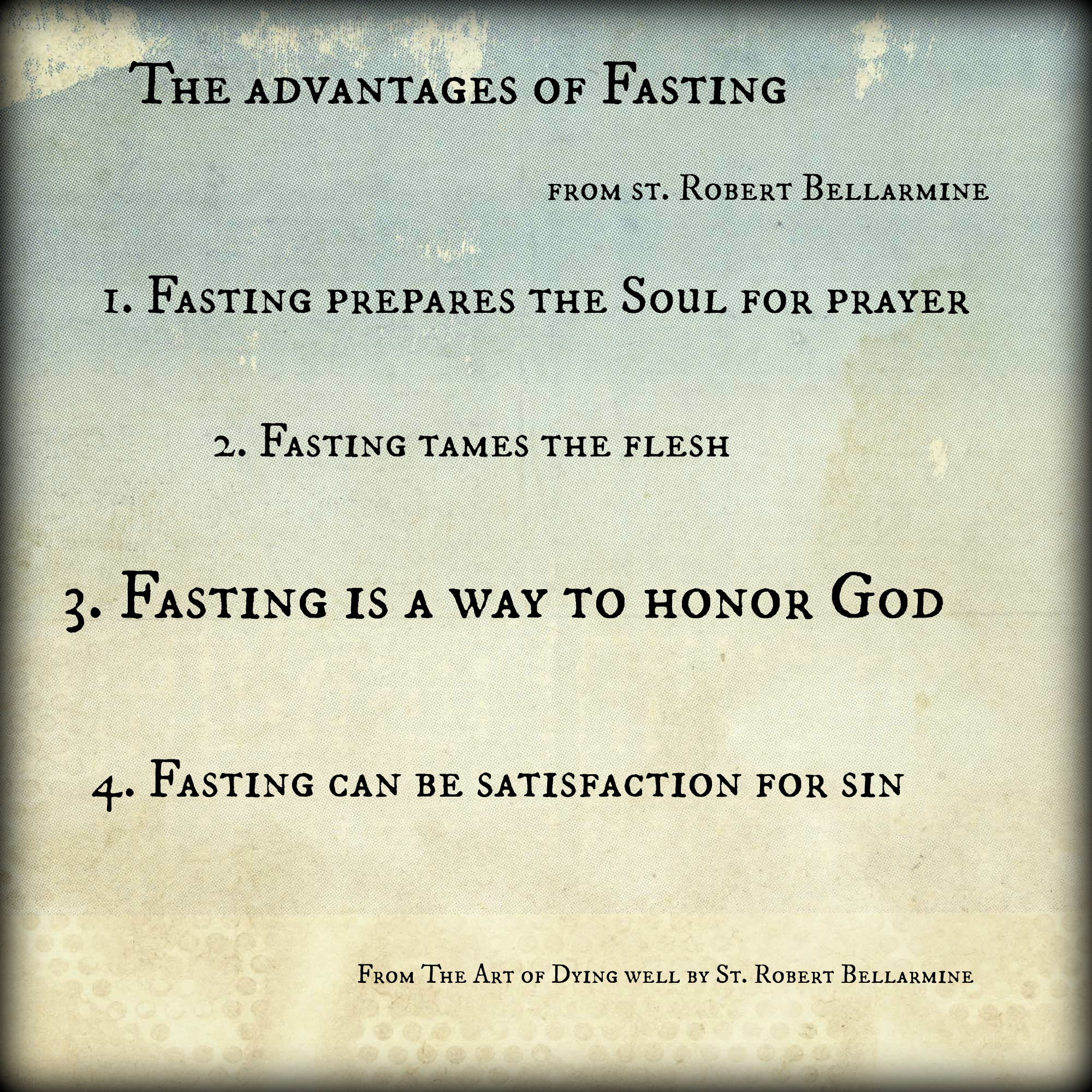(Also a repeat from last year - but it bears repeating...)
Preparing for the Lenten fast? I last posted some thoughts contrasting contemporary paradigms for fasting and the deeper Catholic tradition. No deep thoughts from me today, but just pointing you to St. Robert Bellarmine and his book The Art of Dying Well. (Which, of course, is really about the art of living well.) It's available free online here.
The fruit and advantages of fasting can easily be proved. And first; fasting is most useful in preparing the soul for prayer, and the contemplation of divine things, as the angel Raphael saith: "Prayer is good with fasting." Thus Moses for forty days prepared his soul by fasting, before he presumed to speak with God: so Elias fasted forty days, that thus he might be able, as far as human nature would permit, to hold converse with God: so Daniel, by a fast of three weeks, was prepared for receiving the revelations of God: so the Church has appointed "fasts" on the vigil of great festivals, that Christians might be more fit for celebrating the divine solemnities. The holy fathers also everywhere speak of the utility of fasting. (See St. Athanasius, Lib. de Virginitate St. Basil, de Jejunio. St. Ambrose, de Elia et Jejunio. St. Bernard, in sermone de Vigilia Santi Andræ., &c.) I cannot forbear quoting the words of St. Chrysostom (Homily in Genesis): "Fasting is the support of our soul: it gives us wings to ascend on high, and to enjoy the highest contemplation.!
Another advantage of fasting is, that it tames the flesh; and such a fast must be particularly pleasing to God, because He is pleased when we crucify the flesh with its vices and concupiscences, as St. Paul teaches us in his Epistle to the Galatians; and for this reason he says himself: "But I chastise my body, and bring it into subjection: lest perhaps, when I have preached to others, I myself should become a castaway." (1 to Cor. ix. 27.) St. Chrysostom expounds these words of fasting; and so also do Theophylact and St. Ambrose. And of the advantages of it in this respect, St. Cyprian, St. Basil, St. Jerome, and St. Augustine, and in the office for Prime the whole Church sings, "Carnis terat superbiam potûs cibique Parcitas." (Moderation in food and drink, tames the pride of the flesh.)
